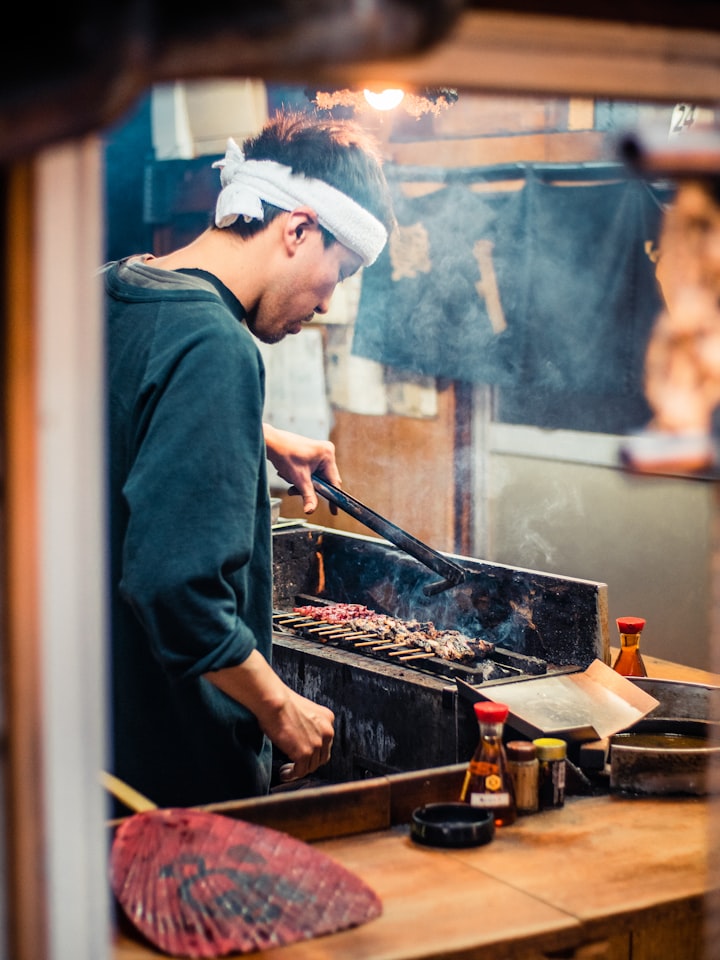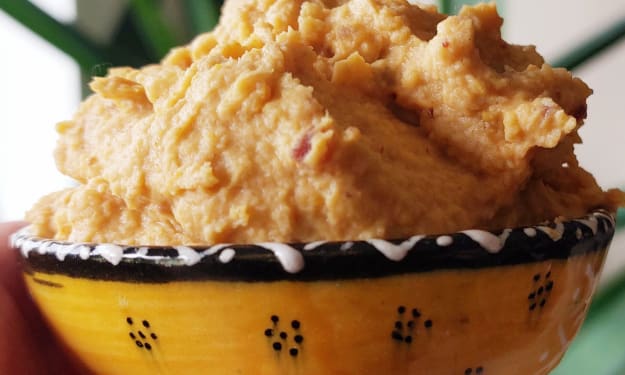
— Life without smoke and fire is a lonely journey.
This is not a life quote. It’s about how Xián foodies spend the long, hot summer nights.
At an intersection of desert and basin, the temperature barely drops after sunset. But people can’t wait to flee from the aircon rooms to the street.
The cold noodles are ladies’ summer snacks. The lamb skewers are men’s summer hack.
The squat-low benches and tables spread until the curbside. Table number services are too fancy for the street stalls. The diners need to stay low so the waiters can see them from afar. It’s important because soon the crowd will get to hundreds of people.
The loud traffic is just a few feet away, the dust swirling in the air, the plastic tables wiggling and squeaking. But nothing in life is so hard that you can’t make it easier by a bundle of lamb skewers.
For one second the peanut-sized meat is still sizzling, the steel stick still burning hot; for another, a tooth-strip leaves the stick nice and clean. After a gulp of cold beer — the 750ml bottle straight, every pain is healed. Life starts to twinkle like the stars in the sky.
Xi’an is, both geographically and demographically, the central point of China. All cultures and traditions come and go, what’s left becomes its blood.
Xi’an lamb skewer is originally from kebab — nearly two million muslin population live in the city. When it first came, the giant meat chunk and steel sticks looked intimidating. They were grilled on stone coals, the sulfurous smell plus the special mutton scent scared people away.
The history of intersection gives Xi’an chefs –especially the street food ones, infinite creativity. After two decades’ evolution, the meat and skewers are now much smaller, charcoals are used, and a much wider range of condiments is used to mitigate the mutton smell and spice up the taste.
Meat is always the focus. But Xi’an lamb skewer has developed its own hardcore –a combination of fat and lean. It’s a subtle cutting work as each piece of meat –the size of a peanut, should show a good proportion between red and white, the red the muscle, the white the fat. The roast generates an arid touch, while the fat converts it into a delicate tang to the palate. To reinforce the sensation, an oil brush is sweeping the skewers throughout the grill, sometimes catching fire at the skewers and the charcoals underneath.
The tendon skewers have fans, too. The hard joint can’t break by teeth unless it’s grilled to near carbon. The rough chowing makes a great match to the cold beer. The roast time is so long that the steel sticks become red hot. But the hungry, impatient eaters jab the sticks to the mouth right away. Then
Seeeeee~
Ah~~~~
A hot sting at the mouth.
A scream by the eater.
And two burning marks flanking the mouth.
The next day your colleagues will know, you had a tendon night last night.
The grill racks, like a mini manger, are smaller than the original. The charcoals are loaded at the bottom, and almost a hundred meat sticks are loaded on the top. The chef rolls over the sticks in bundles with great dexterity, spreads the condiment powder like a magician. Though already rather different from the typical kebab flavor, Xi’an skewers still largely rely on cumin powder.
Almost every skewer stall in Xi’an has its own secret recipes.
The exultation goes late into the night. While the rest of the world already slows down, the countless skewer stalls still glisten around the city with grill fires. The yells and laughs travel even further. Empty sticks pile up on the table, empty beer bottles around the feet. They won’t go away until you check out. The waiter will come to count them one by one and tell you the bill right away.
Two more recommendations.
The roast pita. It’s held by two skewers, grilled the same as the meat, rolling over and spread with brushing oil and condiments. The surface is cut deep to allow the ingredients to come deep inside. Coming to the table, it brings a golden color and crispy touch.
The roast kidney. It’s called “man’s power” under an uncanny theory that “eating kidney improves your kidney”. It goes to other organs, too. Regardless, the tender taste feels great, if you can beat the pungent smell.
It’s a crime to huddle at home in Xi’an’s long, hot summer. Curbside grills everywhere in the city. You can escape the smoke, but how can you escape the smell?
About the Creator
Bond Wang
Hey, I write about life, culture, and daydreams. Hope I open a window for you, as well as for myself.






Comments
There are no comments for this story
Be the first to respond and start the conversation.